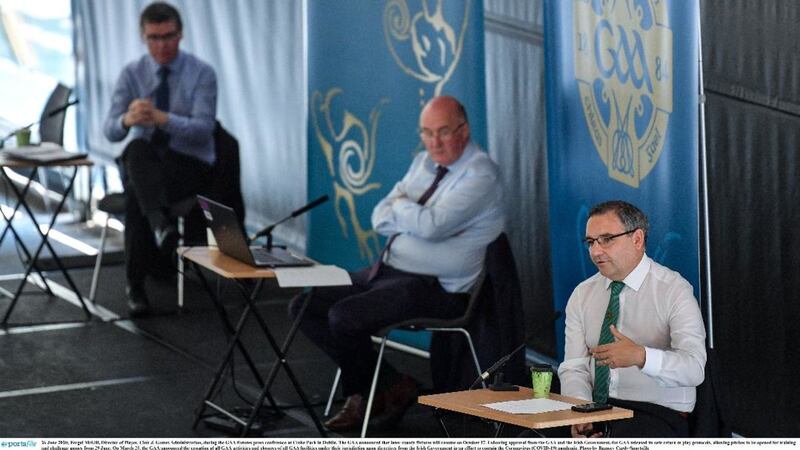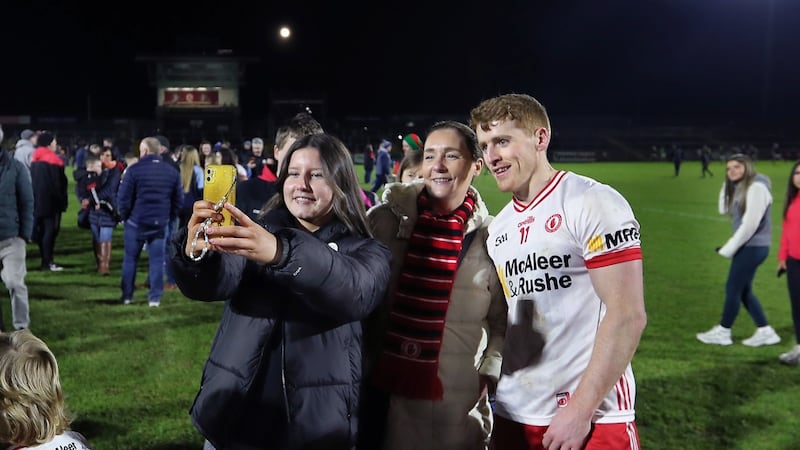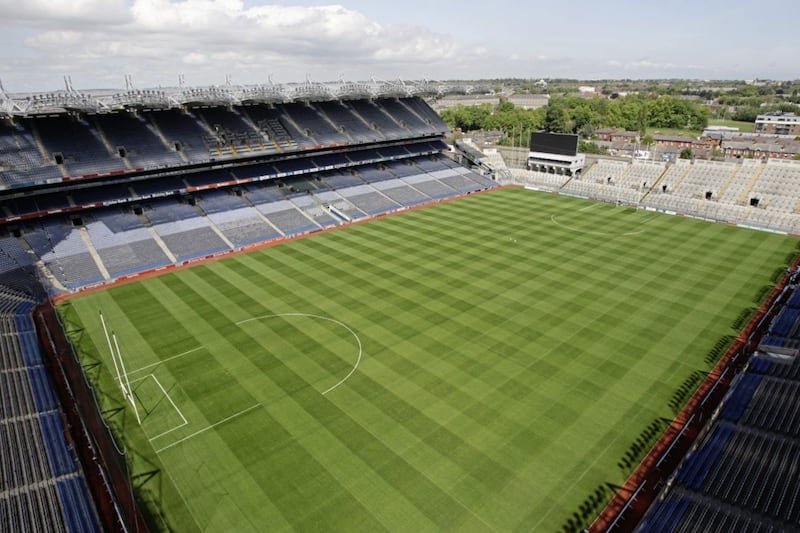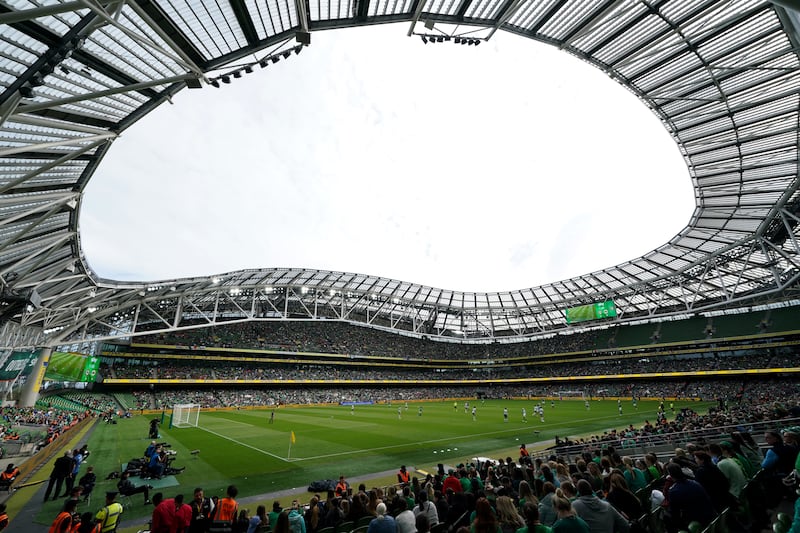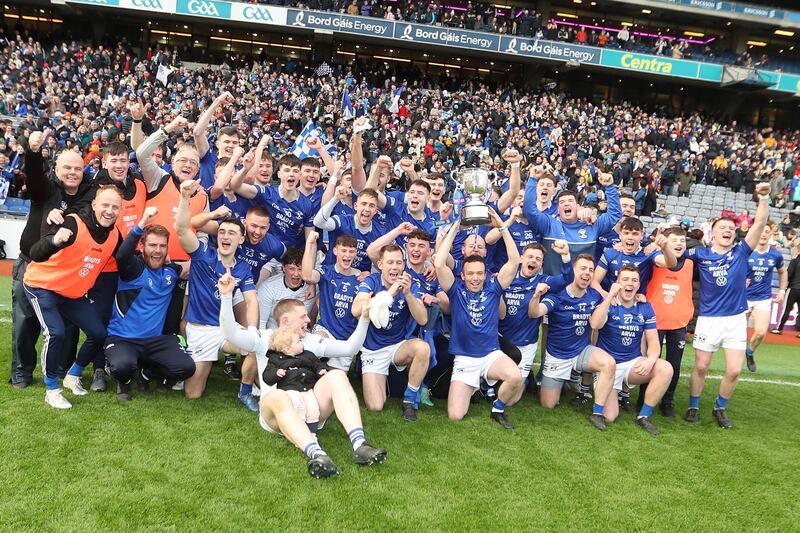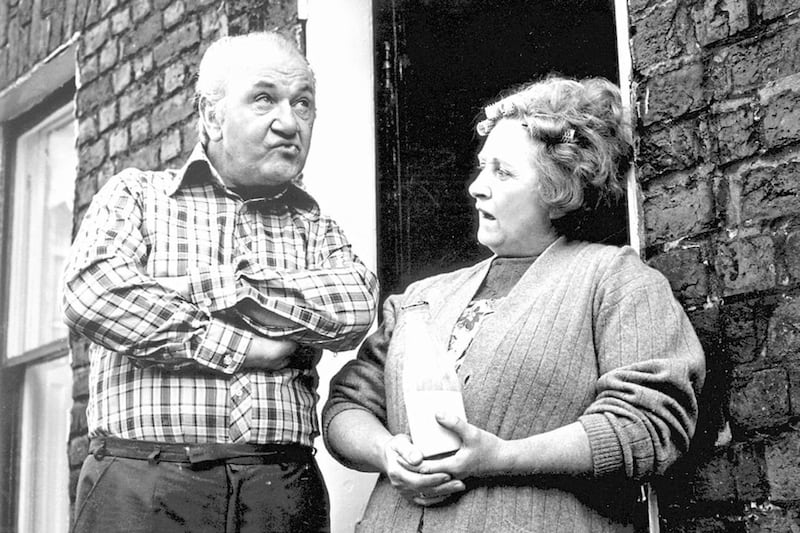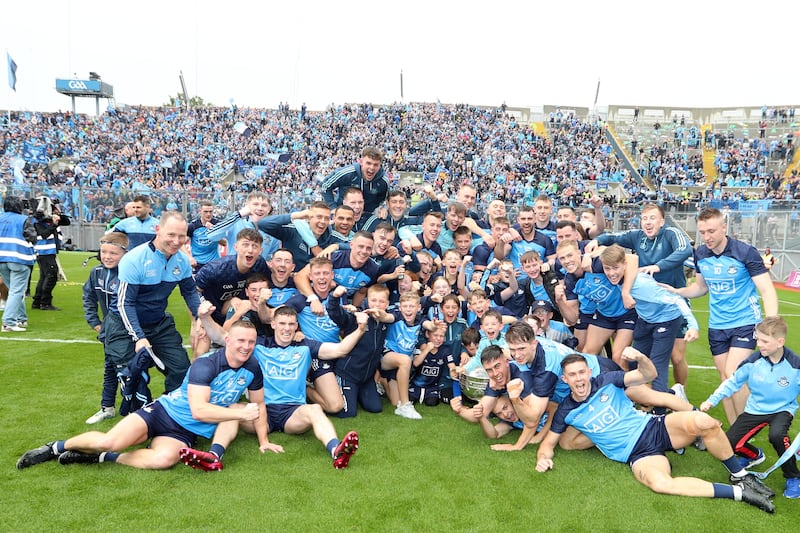MINIMISING any potential impact on 2021 and ensuring a rest period for players were motivating factors behind some of the decisions in the revised 2020 GAA calendar.
The GAA's Director of Player, Club and Games Administration, Feargal McGill insisted that there would be no provincial/All-Ireland club championships arising from this year, explaining:
"I can't see it happening. We have to build in a rest period for people as well, we also have third level competitions that have an impact on that.
"Something has to give and I suppose our priority as an Association, broadly speaking, and Tom [Ryan] and John [Horan] would have been exceptionally strong on this, the most important thing is to get a good club window in 2020.
"We could have crammed the club window for county boards if we wanted and open the window, if you like, for provincial and All-Ireland club championships - but we have 1,700 clubs that need to be active.
"There's only 32 clubs that win a county title. It ultimately came down to giving the time to the many as opposed to the few. That's just a hard decision that we have to make, not one we're thrilled about, but a hard decision we just had to make."
The Leitrim man explained that consideration for volunteers ruled out any Friday evening matches, even in a tight schedule:
"No we won't be having Friday night fixtures…for the very simple reason that we remain a volunteer association.
"If you have a game at 8 o'clock on a Friday, you are talking about teams getting together at 1 o'clock in the day. That's a half-day off work for those that have to work.
"It's also, everyone just thinks that you turn up in Croke Park and the venues and run out onto the pitch and it all happens. You've seen it here. Some of you would be in here two hours before a game and the stewards that are letting you in have been here another two hours before that.
"So again, for our volunteer stewards all around the country, they have got to be in place three or four hours beforehand and you would be depending on them getting off work.
"The practicalities are just not on. It's nice to look at rugby and soccer and think it's great that they can play on any day. It's not practical in an amateur association."
Providing more opportunities to win was a major reason behind not going for an open draw, as had been advocated by some, said McGill:
"We didn't rule anything in or out when we sat down to do the fixtures. A couple of things though did occur to us while we were doing those: the first thing is, if you play the provincial championships in football, you're going to have four teams with silverware at the end of the year.
"In hurling, you're going to have two teams as winners [from Leinster and Munster Finals] and possibly three if a different team wins an All-Ireland. So that was one of the reasons, you're going to have five other [hurling] finals, and at least four teams with silverware.
"Another reason was, you have to consider, what are you trying to solve in terms of having an open draw? Usually people will tell you what you're going to solve is avoiding 'cannon fodder' for the big teams. But an open draw does not solve that, in fact it might add to it. So on balance, we felt the best approach was the provincial championships."
